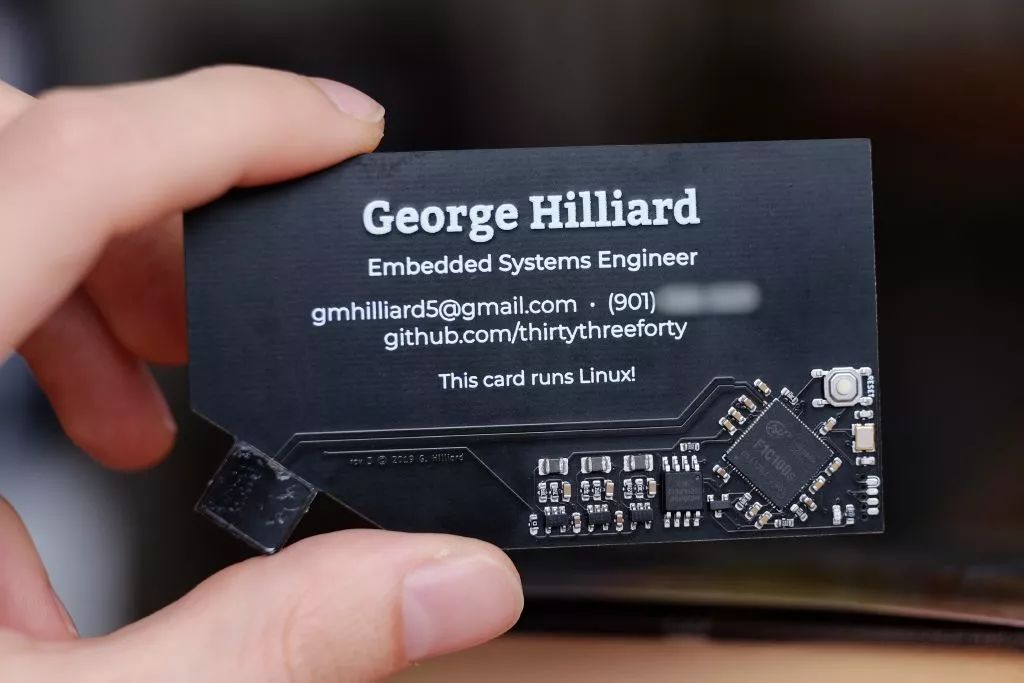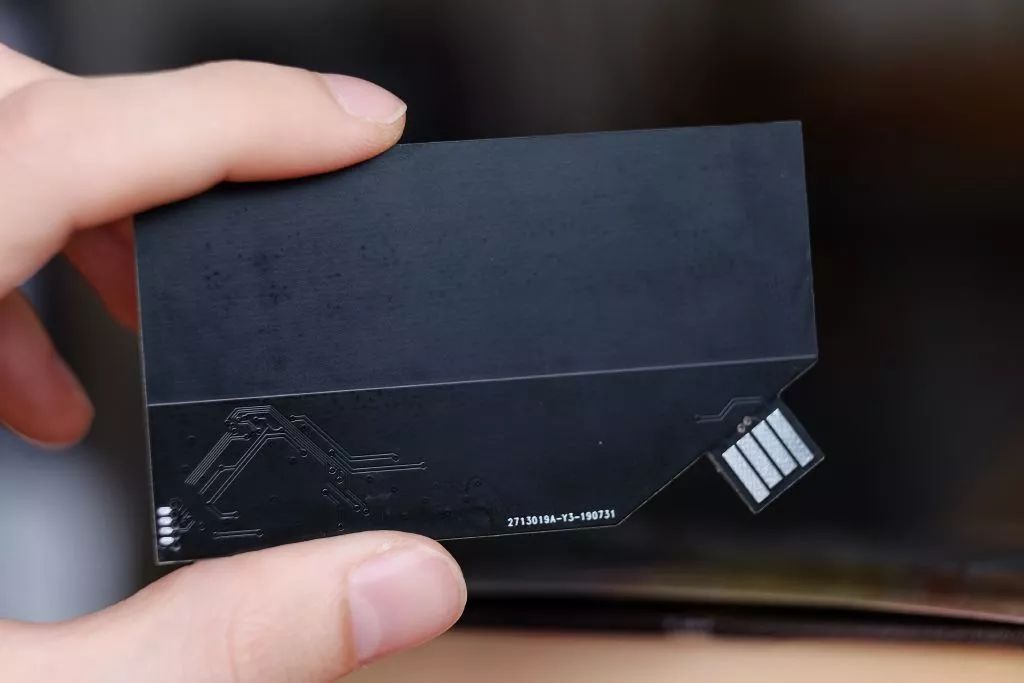George Hilliard is an embedded systems engineer who spends a lot of time looking for inexpensive Linux computers. One day, the idea of creating a Linux board the size of a business card came to his mind.
Previously, George had seen some electronic business cards with various interesting features, including simulating USB flash drives, blinking indicator lights, and even wireless transceivers. However, none of them ran the Linux operating system. So, he quickly got to work and succeeded.

This is the finished product. It is a complete and also the smallest ARM computer, running a custom Linux firmware built with Buildroot.
The business card prints George’s name, title, email, and other standard information, with a USB port on one corner. When this card is plugged into a computer, it will boot within 6 seconds and can serve as a flash drive containing a README file, a copy of his resume, and some photography works. It also features several games and classic Unix functionalities, such as a small 2048 and a MicroPython interpreter.
George explains that all of this was accomplished on just an 8MB flash chip. The Bootloader is 256KB, the kernel is 1.6MB, the entire root filesystem is 2.4MB, leaving some space available.

Perhaps the most surprising thing is that the entire card costs less than $3. The processor is key to keeping costs low; after extensive research, George chose the F1C100, which combines RAM and CPU. He also revealed that he sourced this from Taobao.
However, due to size and cost constraints, this business card lacks I/O, cannot connect to the network, and does not have enough storage to run heavyweight programs.
Currently, George has open-sourced his Business Card Linux.
Traditional containers represented by Docker are at a critical juncture
Spring Cloud 2020 roadmap
IntelliJ platform 2020 roadmap
Scala roadmap: skipping 2.14, moving to Scala 3 next year
GNOME operating system is coming